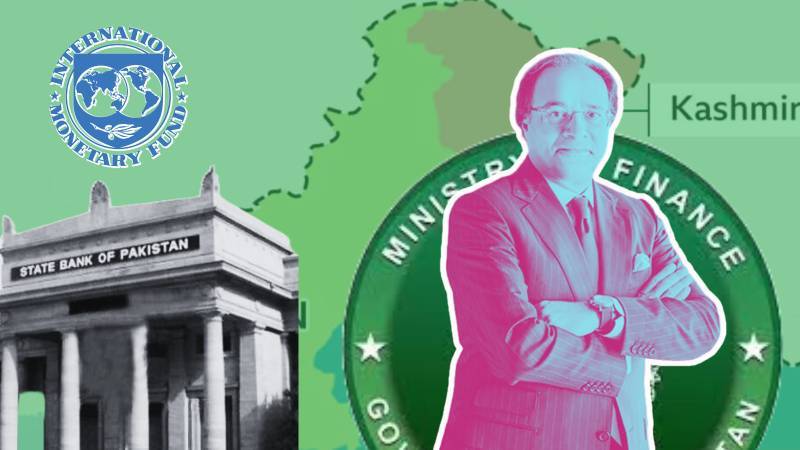
Just the other day, I saw a report by Shahbaz Rana of Express Tribune (there are only three business/economy reporters/journalists in Pakistan who are worth reading – and he's one of them – Khaleeq Kayani of Dawn and Mehtab Haider of The News are the other ones) which said that salaried people had paid Rs 198 billion in income tax in the first five months of the current fiscal year 2024-25. The report also said that this was Rs 72 billion higher than for the same period the previous fiscal year, or a whopping increase of 57%.
For this, salaried people need to thank Finance Minister Muhammad Aurangzeb, and of course the IMF.
The massive increase in income tax rates happened in the federal budget for 2024-25 and was seen as a desperate measure by a government desperate to raise revenue to bridge the widening gap between its expenditures and revenue from taxes. Unfortunately, the imposition of new taxes, as usually is the case with all governments in Pakistan, ended up further burdening those who already pay tax, and continues to leave out those who don’t pay their fair share of tax or engage in whole tax evasion.
The main question that citizens and taxpayers need to ask the Government of Pakistan is a pretty straightforward and basic one – for the amount that we pay in income tax what do we get in return?
Do we get quality healthcare and education for ourselves, for our children, and for our parents and grandparents? Do we get good and smooth roads, which won’t damage our cars or motorcycles? Do we get cheap and affordable electricity? Do we get clean water through our taps so that we don’t have to pay expensive tankers or trudge to a municipal tap located miles away from our homes? Does the government provide us with a clean living environment so that we don’t breathe in toxic air and don’t end up drinking water that can kill our children? Do we have easy and affordable access to a legal system that is able to provide prompt and efficient justice to those of us who have been wronged?
Instead of continuously burdening existing taxpayers with even more taxes, the federal government needs to widen the tax base and increase the number of people and companies who pay taxes
We all know the answer to this basic question and the many questions that follow from it. That is perhaps one reason why many people resent paying taxes – because they feel and believe through their own lived experience that they won’t get much from the state and the government in return for their taxes, and that most of the tax revenue will be diverted to enrich the lives of the very powerful and influential few in the country.
Moving to a more practical question – what is the federal government and in particular the Federal Board of Revenue doing to widen the tax net? What is being done to ensure that those who don’t pay their fair share of tax or those who don’t pay any tax are brought into the tax net? The answers to these questions are very important, not least because a strong and implementable response to this could help reduce the existing tax burden on the salaried class, by making the pie larger, and it could also help bridge the country’s gap between how much it earns through taxes and how much it spends on various services and the welfare of its citizens.
Instead of continuously burdening existing taxpayers with even more taxes, the federal government needs to widen the tax base and increase the number of people and companies who pay taxes. That is the only way forward since burdening existing taxpayers is likely to lead to further tax evasion. Furthermore, an increase in the tax rate ends up reducing disposable income in the economy and that can have a contractionary effect on the economy which is the opposite of what is needed in Pakistan since its GDP growth rate has hovered at a relatively low 2-3% for the past several years.

